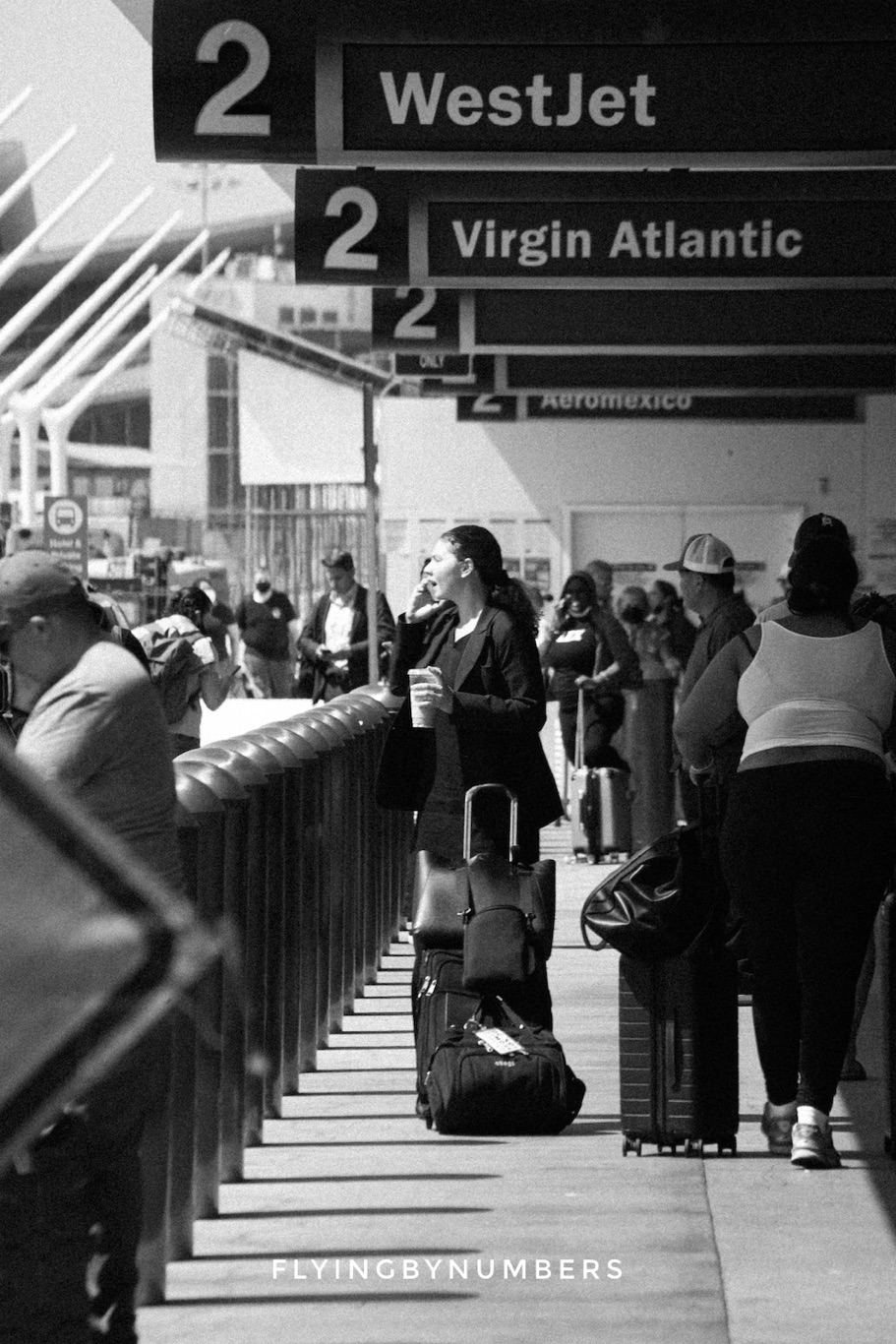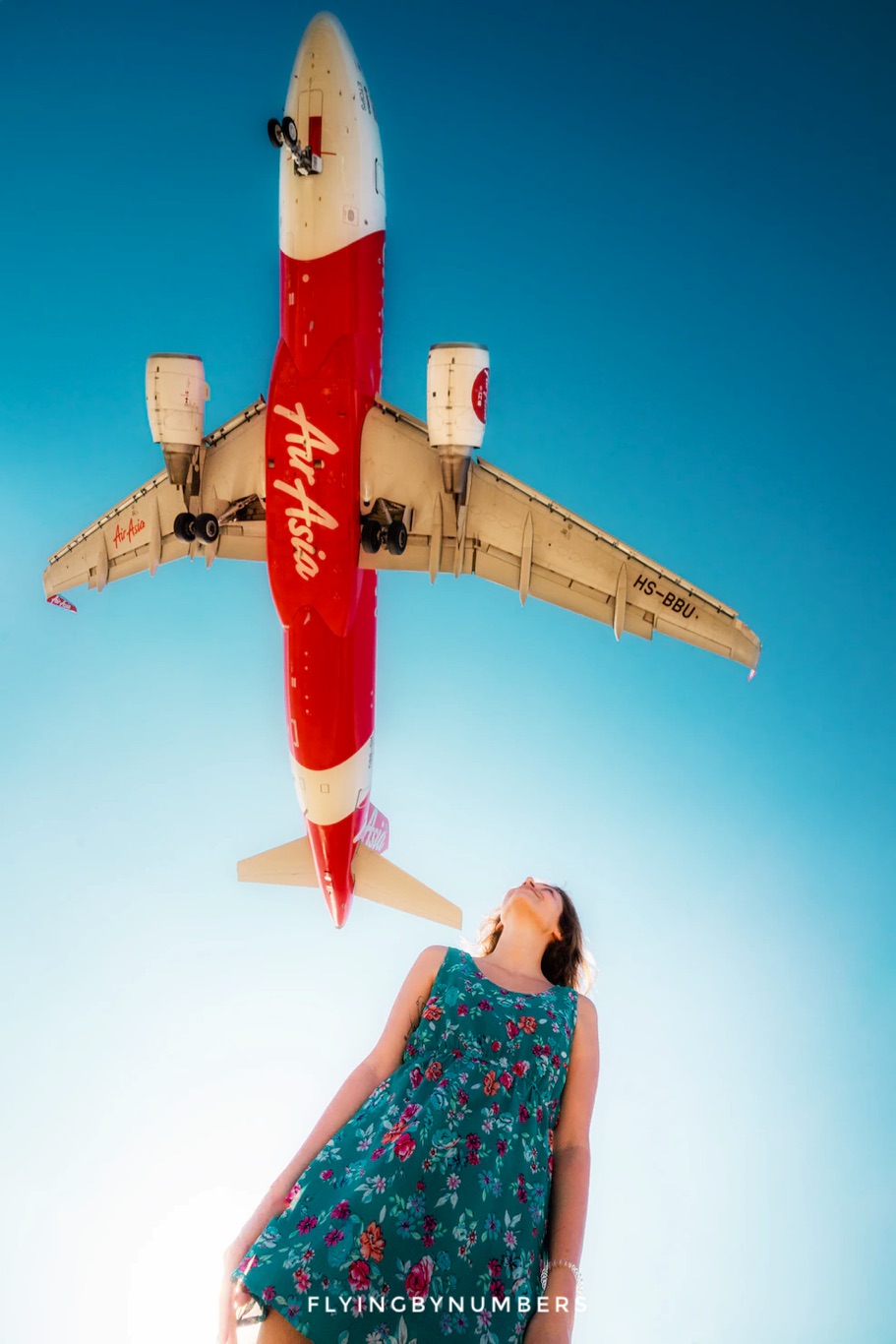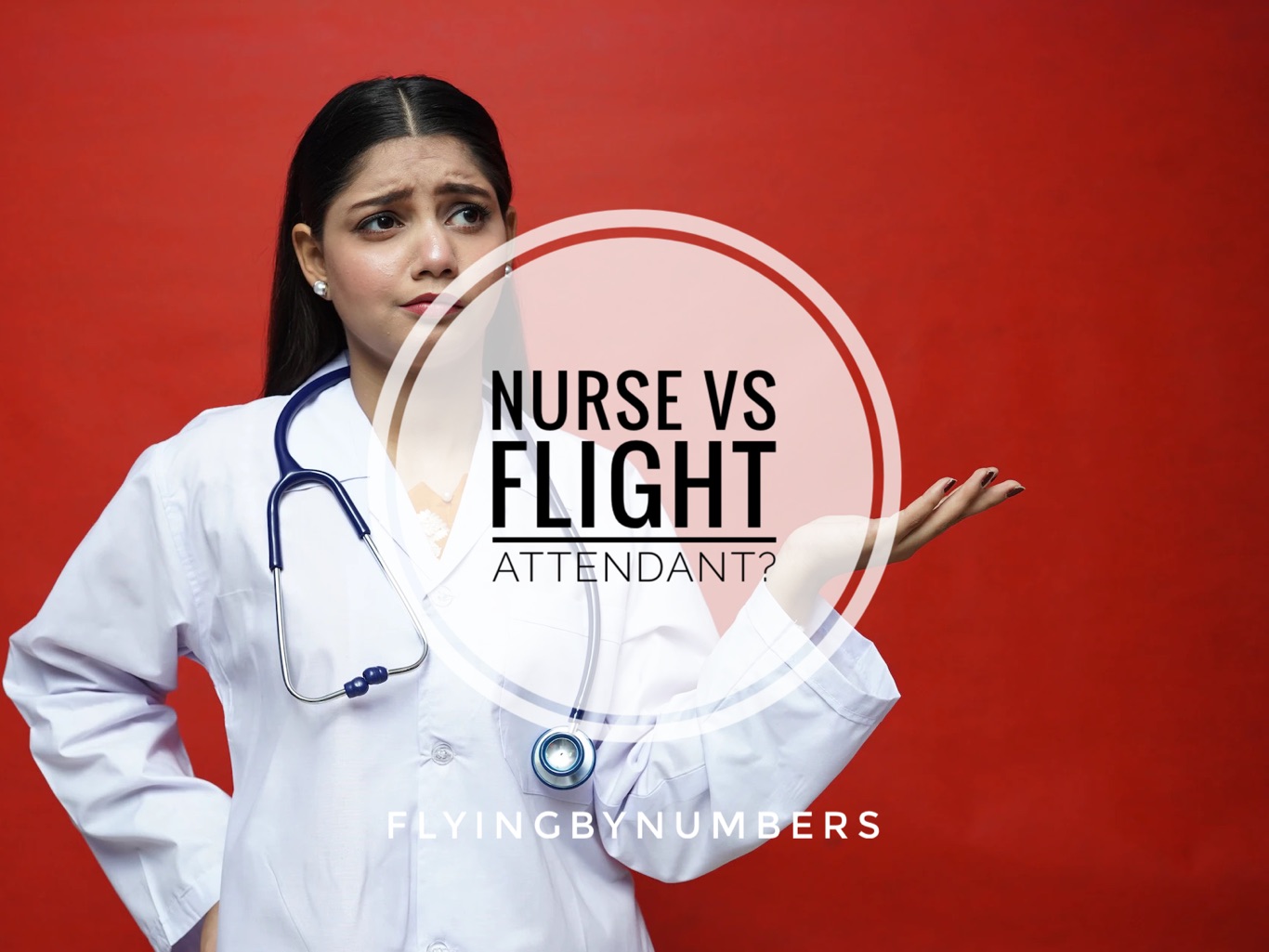Flight attendants and nurses are two careers that are frequently grouped together. Many workers straddle the two professions. Airlines have previously targeted recruitment campaigns at nurses, and it’s not uncommon to fly with part-time flight attendants that still maintain their nursing qualifications, or are ex-nurses.
This is backed up when looking at demographics data — flight attendants and nurses have a surprisingly large amount in common. Both careers are overwhelmingly female, with near 80:20 gender ratios. Additionally, nurses, and flight attendants have a similar length of service, and job satisfaction.
However, there are obviously some key differences between the two careers. In this guide, we will explore how similar the two careers really are, and discuss 5 key career questions.
We will cover education requirements, job security, pay, desirability, and career progression.
Educational requirements
As we explained in cabin crew FAQ post “Which subject should I study to become a flight attendant”, you do not need a degree to pursue a career as a flight attendant. However, many airlines now prefer candidates who have a degree, or at least some college education. Regardless of your educational background, all new entrant cabin crew will need to undergo full-time training to attain their flight attendant attestation.
In contrast, nurses must have at least an Associate’s Degree in Nursing (ADN) to be licensed to practice nursing. This adds another barrier to entry, and can also be relatively costly.
Once in the job, both careers have ongoing mandatory training. Nurses will need to keep up to date on the latest clinical changes, alongside updated practises in PPE, incident and record keeping.
Similarly, flight attendants have annual safety and emergency procedure training, alongside customer service updates, and changing security and aviation related processes.

Job security
While current demographics show low unemployment among both flight attendants and nurses, it’s fair to see overall, airline crew have less job security.
Both careers share the ability to work in many parts of the world. However, aviation is a highly cyclical career, with job layoffs and rapid periods of expansion following the global economy.
Looking towards the future, with an increasing focus on sustainability — including discussions about limiting flying — will this demand for flight attendants and pilots remain? It’s difficult to tell.
In contrast, nurses have almost unrivalled job security. A career already in high demand, with ageing populations and shortages of qualified nurses, requirements for the nursing and healthcare industry will only continue to grow.
Pay and benefits
Pay and benefits are a bit of a mixed bag. At first glance, American nurses earn significantly more money than American flight attendants.
However, there are several factors that even the odds:
Job satisfaction

72% satisfied
Images of travelling to far-flung destinations, staying in exotic hotels and margaritas on the beach is a strong selling point for a career in aviation!
Flight attendants are typically seen as being more glamorous than nurses, but is that true?
While some parts are true — there are plenty of downsides to working as cabin crew. The flight attendant lifestyle can be very demanding, and often working long hours in less than glamorous destinations!
Nurses, on the other hand, frequently have more regular hours and can have a more stable lifestyle.
While both jobs are shift work, nurses working holidays and overnights will be compensated with lucrative overtime rates, while for a flight attendant, it’s just another part of the job.
While both careers have relatively high job satisfaction, the constant travel can take its toll and this is reflected in slightly lower job satisfaction for airline crew.
Seventy-two percent of flight attendants in the USA report they are satisfied with their job, versus over 94 percent of all USA-based nurses.

94% satisfied
When asked what the most rewarding aspect of their job was, most nurses said helping people and making a difference in people’s lives.
Nurse Career Satisfaction Report — Medscape
Interestingly, whilst both careers rate highly for job satisfaction, there is a stark difference in job meaningfulness. Unexpectedly, nurses score exceptionally highly for meaningful ness, whereas significantly less than half flight attendants consider their job meaningful.
Career progression
Career progression is a relatively even split between the two professions, but arguably nurses have a slight advantage and certainly have more specialisation options within their career.
With experience, cabin crew will become senior flight attendants, followed by purser, and potentially have management roles within the airline industry to explore. Equally, there are many offshoots in aviation safety, additional customer service instruction roles, and HR positions available to flight attendants in larger airlines.


For nurses, there is also plenty of progress from staff nurse, to senior nurse and then on to management or specialist positions.
One key difference between the career progression of both professions is seniority. While flight attendants often have to start over at the bottom when they change airlines, nurses can move between hospitals with relative ease. As a result, ambitious flight attendants can find themselves penalised for moving between airlines, whereas nurses are likely to progress faster by switching practises frequently.
Summary — So, which is better? Flight attendant vs nurse?
On the surface, flight attendants and nurses are two similar careers. In fact, many workers switch between the two — and we’ve noted that both nurses and flight attendants have similar demographics.
However, while the two careers have similar starting skill sets and attract a similar demographic, the day-to-day reality of these two careers is further apart than most think. Hopefully, this article has highlighted some substantial differences both prospective careers bring. Once you scratch the surface, the differences can have a large impact on your lifestyle and potential career progression.
Which career is right for you will depend on your individual preferences including, work-life balance, future earnings, and university education.
If you are interested in travel, meeting new people, and spontaneity, then the flight attendant lifestyle can be a great match. However, if you are looking for longterm job security, good pay, and are willing to attain additional qualifications and specialisations, then nursing may be better suited to your needs.
Whichever career you choose, we wish you the best of luck!





